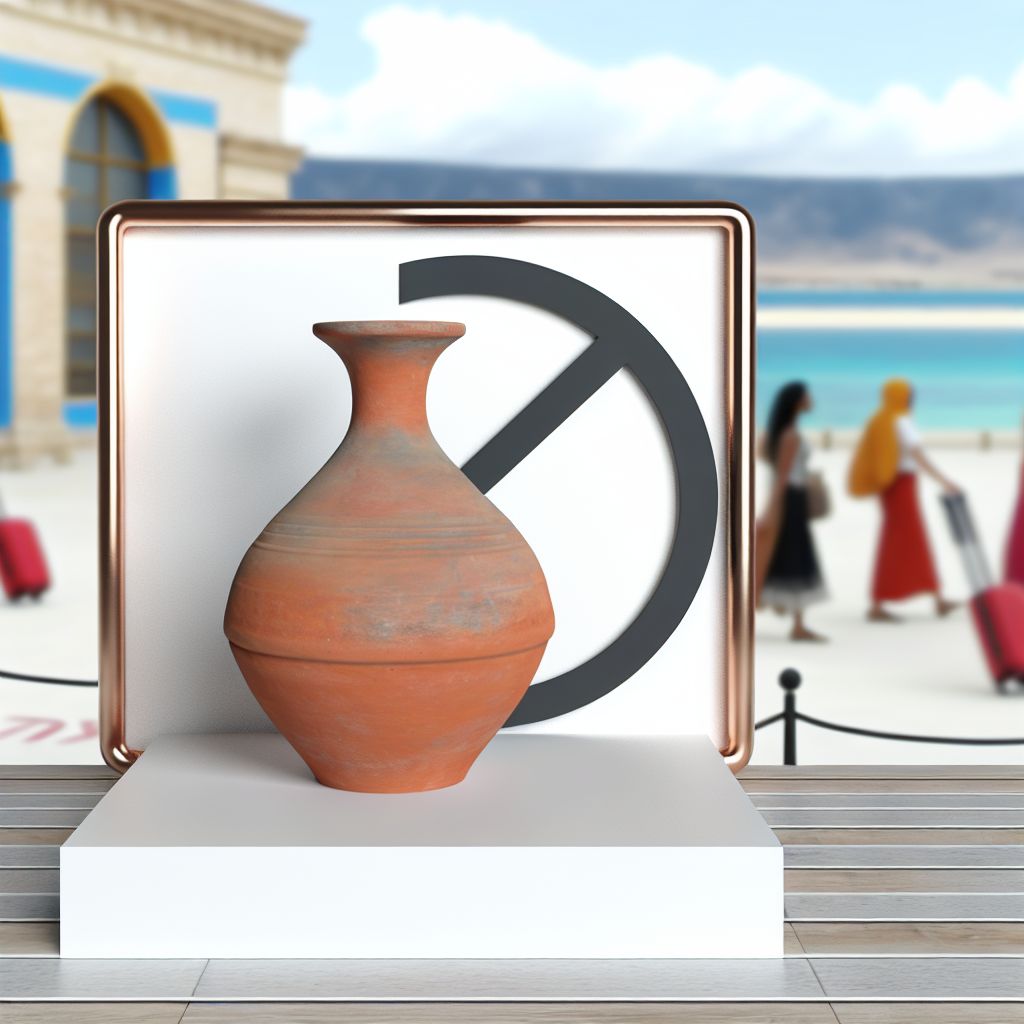In the travel context, terracotta refers to the ceramic material and the cultural artifacts or artistic items made from it that tourists often seek out during their travels. Terracotta, which means "baked earth" in Italian, is a clay-based unglazed or glazed ceramic, notable for its reddish-brown color. It is commonly used in pottery, sculptures, and various architectural elements.
Description

Terracotta has been used for centuries in various cultures around the world, both for practical and decorative purposes. In travel, terracotta is significant mainly for its cultural and artistic value. Tourists are often drawn to regions known for their terracotta craftsmanship, where they can purchase traditional pottery, admire historic terracotta architecture, or participate in workshops to learn about the art of terracotta pottery-making.
Application Areas
Terracotta plays a role in several aspects of travel:
- Cultural Tourism: Visiting historical sites and museums that feature terracotta artifacts, such as the Terracotta Army in Xi'an, China, or exploring regions known for terracotta architecture like the temples in Bishnupur, India.
- Artisanal and Handicraft Shopping: Purchasing terracotta items like vases, tiles, or figurines as souvenirs, which reflect the local culture and craftsmanship.
- Educational Workshops: Engaging in hands-on experiences where travelers can learn about the processes involved in creating terracotta art and pottery.
Well-Known Examples
Famous examples of terracotta in the travel context include:
- The Terracotta Army: Thousands of terracotta soldier statues buried with the first Emperor of China, Qin Shi Huang. This archaeological site attracts millions of visitors annually.
- Italian Terracotta Pottery: Regions like Tuscany are renowned for their traditional terracotta pottery, often used in both functional and decorative ways.
- Indian Terracotta Temples: The town of Bishnupur is famous for its richly decorated terracotta Hindu temples, dating back hundreds of years.
Treatment and Risks
When traveling and purchasing terracotta artifacts, it's important to handle these items carefully as terracotta is porous and can be fragile. Transporting terracotta items requires proper packaging to prevent damage. Ethical considerations should also be taken into account, ensuring that purchases do not involve looted or illegally traded artifacts, especially when buying antiquities.
Similar Terms
In a related context, you might consider:
- Ceramics: A broader category that includes terracotta but also other types of clay arts like porcelain and stoneware.
- Earthenware: Similar to terracotta, earthenware is a common type of ceramic that is fired at lower temperatures and is slightly more porous.
Articles with 'Terracotta' in the title
- TerraCotta Warriors: The TerraCotta Warriors is one of the most popular sightseeing locations in the world. Details: Country: China, Nearest major city:, Look for more details at the Hillmann's Wonders- Weblinks: Wikipedia, Pictures from flickr about TerraCotta . . .
Summary
In the realm of travel, terracotta is celebrated for its cultural significance and artistic appeal. Tourists often explore historical sites featuring terracotta, engage with local artisans, and bring home terracotta items as souvenirs. These experiences not only enrich the traveler’s understanding of the destination's heritage but also support local traditions and crafts.
--
Related Articles to the term 'Terracotta' | |
| 'Culture' at psychology-lexicon.com | ■■■■■■■■■■ |
| Culture is defined as an on-going pattern of life, characterizing a society at a given point in historythe . . . Read More | |
| 'Material' at psychology-lexicon.com | ■■■■■■■■■ |
| Material is defined as a sub-section of the methods section that describes any written or videotaped . . . Read More | |
| 'Earth' | ■■■■■■■■■ |
| Earth refers to the planet itself and the Exploration of its diverse landscapes, natural wonders, and . . . Read More | |
| 'Gastronomy' | ■■■■■■■■ |
| Gastronomy in the context of travel refers to the exploration and enjoyment of a destination’s Food, . . . Read More | |
| 'Tableware' at top500.de | ■■■■■■■ |
| Tableware: In the industrial or Industry context, tableware refers to the items used for setting a Table, . . . Read More | |
| 'Collection' at psychology-lexicon.com | ■■■■■■■ |
| In the realm of psychology, the term "collection" is not typically used in the same way as it might be . . . Read More | |
| 'Element' at psychology-lexicon.com | ■■■■■■■ |
| Element is defined as a Single chemical substance composed of only one type of atom, examples are calcium . . . Read More | |
| 'Conveyance' at psychology-lexicon.com | ■■■■■■■ |
| In the psychology context, conveyance refers to the process of transmitting or communicating thoughts, . . . Read More | |
| 'Fastener' at environment-database.eu | ■■■■■■■ |
| A fastener in the environmental context refers to any component used to securely join, connect, or attach . . . Read More | |
| 'Library' | ■■■■■■■ |
| Library in the travel context refers to public or private institutions, as well as smaller book collections . . . Read More | |
